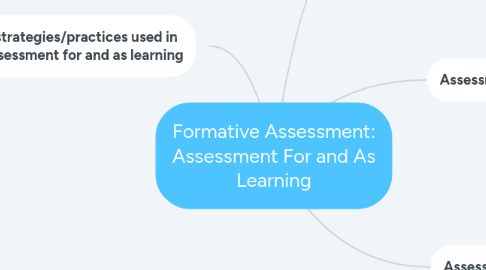
1. 6 strategies/practices used in assessment for and as learning
1.1. Developing Learning Goals
1.1.1. common understanding of what is being learned (Growing Success, 2010)
1.2. Identifying Success Criteria
1.2.1. involve students in the process of creating success criteria and establish a common understanding of what defines success in learning (Growing Success, 2010)
1.3. Eliciting Information about Student Learning
1.3.1. teachers gather information about student learning through observation, student-teacher conversations, and student work (Growing Success, 2010, p. 34)
1.4. Providing Descriptive Feedback
1.4.1. provide students with information about what they are doing well, what needs improvement, and what specific steps they can take to improve (Growing Success, 2010)
1.5. Developing Student Self Assessment and Peer-Assessment Skills
1.5.1. students begin to assess their own learning with the support of their teacher (Growing Success, 2010)
1.6. Developing Individual Goal Setting
1.6.1. students identify specific areas they need to improve on and start to plan their next steps (Growing Success, 2010).
